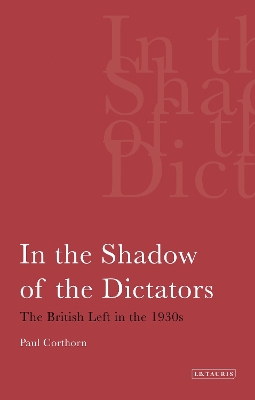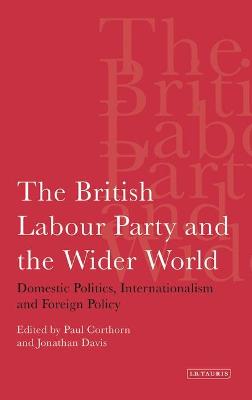International Library of Political Studies
2 total works
v. 11
Paul Corthorn presents an illuminating, in-depth study of the British Left's response to the rise of international fascism in the 1930s. He uses a range of newly available archival sources to analyse how the Labour left - which took the form of the Socialist League between 1932 and 1937 - and the Independent Labour Party reacted to developments such as Mussolini's invasion of Abyssinia, Franco's uprising in Spain and Hitler's drive for territorial expansion. He argues that their responses to these threats from the fascist dictators were shaped above all by their constantly changing views of another dictatorship: the Soviet Union under Stalin.
'an elegant piece of innovative research on the Labour left between 1932 and 1939'
'based on an impressive amount of research and on a perceptive and sensitive handling of the evidence collected'
'this elegantly written book fills a major gap in the existing literature'
Professor E F Biagini, University of Cambridge
'an elegant piece of innovative research on the Labour left between 1932 and 1939'
'based on an impressive amount of research and on a perceptive and sensitive handling of the evidence collected'
'this elegantly written book fills a major gap in the existing literature'
Professor E F Biagini, University of Cambridge
v. 20
The British Labour Party and the Wider World
by Paul Corthorn and Jonathan Davis
Published 24 October 2007
Following Britain's - and specifically the Blair Government's - decision to support the United States in the war against Iraq, much has been written about the Labour party's international posture and perspectives. Yet very little serious academic analysis of Labour's stance towards the wider world has taken place among specialists. "The British Labour Party and the Wider World" examines how throughout the twentieth century Labour's international policies have been influenced by domestic politics, and how in turn world events and Labour's response to them have helped to change the party's ideology, political culture and domestic agenda from the 1920s up to the Iraq War. This is essential reading for anyone wanting to understand the motivations and influences behind the Labour Party's actions on the world stage, as well as students and researchers of British politics.

